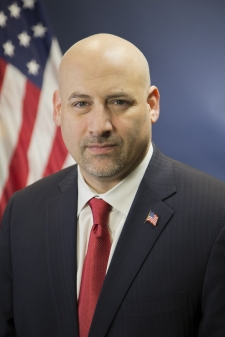The individual allegedly solicited bribes from clinical laboratories for COVID-19 test referrals. The indictment under anti-kickback laws should make medical laboratories more aware of risky situations
Just weeks after the first cases of SARS-CoV-2 appeared in the United States, federal prosecutors filed criminal charges in a COVID-19 clinical laboratory test fraud scheme. Erik Santos, 49, of Braselton, Ga., was charged with conspiracy to defraud federal and private healthcare programs by submitting fraudulent testing claims for COVID-19, respiratory pathogen panel, and genetic cancer screenings.
This case is notable because federal prosecutors filed criminal charges in a case involving soliciting bribes from clinical laboratories for COVID-19 test referrals, within weeks of the SARS-CoV-2 pandemic emerging. Such speed in pursuing a criminal case involving illegal inducements for medical laboratory testing is rare.
Court documents described this case in detail. “Santos offered kickbacks in exchange for medically unnecessary tests—including potentially hard-to-obtain COVID-19 tests—thus preying on people’s fear in order to defraud the government and make money for himself,” commented District of New Jersey, U.S. Attorney Craig Carpenito in a public statement.
Santos ran a marketing company that generated “qualified patient leads” for clinical laboratory testing from physicians for cancer screening since November 2019. Santos worked with others to “defraud Medicare by soliciting and receiving kickback payments from companies involved in clinical and diagnostic testing in exchange for steering to those companies individuals eligible for testing that Medicare would reimburse,” court records show.
The labs allegedly paid kickbacks to Santos on a per-test basis for submitting cancer genetic (CGx) tests to the labs, regardless of medical necessity, records show. “Santos’ scheme aimed to submit more than $1.1 million in fraudulent claims to Medicare,” the DOJ explained.

District of New Jersey, U.S. Attorney Craig Carpenito (pictured) oversees all federal criminal prosecutions and the litigation of all civil matters in New Jersey in which the federal government has an interest. The Santos anti-kickback case filed March 26, 2020, involves a marketing scheme, medical laboratories, and a bundle of tests that include cancer genetic (CGx) tests. (Photo copyright: USDOJ)
When news reports showed growing demand for coronavirus tests, Santos expanded his schemes so that he could be paid kickbacks on a per-test basis for COVID-19 tests, according to court records. Additionally, to do so, the COVID-19 tests were bundled with a more expensive RPP test that does not identify COVID-19.
Santos expected to generate 8,000 to 10,000 completed test kits per month for the combined coronavirus and RPP tests from patients in assisted living facilities, hospitals, urgent care centers, and medical practices, according to court records.
Implications of EKRA on Offering COVID-19 Testing Services
While Santos was charged under the federal AKS, clinical laboratory managers and pathologists should be aware of the implications of EKRA, the Eliminating Kickbacks in Recovery Act of 2018. EKRA has broader restrictions than the AKS and applies to diagnostic testing that is billed to private insurers and some patients who pay out of pocket as well as to Medicare and other government programs.
Under EKRA, laboratories may not pay commissions to sales or marketing personnel for attracting business, including COVID-19 related testing.
Clinical testing providers who are paying sales employees based on the volume or value of tests may be considered to be making a criminal violation. Clinical testing laboratories should review their relationships with outside marketing firms to determine if they could be considered payments for referrals.
Laboratories or pathology groups should also ensure that they are not ordering unnecessary tests and billing Medicare for tests that are not needed.
Another interesting fact in the court documents is that Santos told the DOJ that not one doctor refused to prescribe both COVID-19 antigen testing with a respiratory pathogen panel, regardless of medical necessity. Medical laboratories will need to be aware of the potential that unnecessary tests may be ordered as a result of kickbacks and fraud. Labs should consider further investigating any unusual test ordering patterns to ensure they are not involved in illicit activities.

—By Caleb Williams, Editor, COVID-19 STAT
Related Resources:
U.S. District Court Complaint Against Erik Santos
EKRA Implications for Clinical Laboratories
Recent Kickback Charge Draws Attention to EKRA
Georgia Man Arrested for COVID-19 Related Scheme to Defraud Healthcare Benefit Programs






